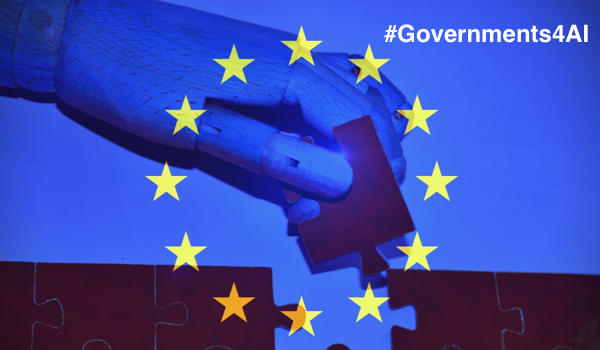


LONDON - In this ever-evolving digital era, the pressing question is no longer whether artificial intelligence (AI) governance is necessary, but how it should look and function.
AI governance is viewed as a maze that potentially holds the key to unlocking and harnessing the power of AI in the safest and most productive manner. One thing is certain: Companies, governments, and civic society increasingly align in their belief that AI needs regulating, based on the awareness that while AI is undoubtedly the key to unlocking unparalleled opportunities across all sectors, it also carries huge risks. These span from the potential exclusion of some individuals from essential services, to flaws in facial recognition tech that reinforce existing biases.
The European Union, a frontrunner in the race to govern AI, has its EU AI Act, which is now closer to the finish line after a trilogue - an informal negotiation between the European Parliament, Council of the European Union, and European Commission - which culminated in a frantic 36 hours of discussion last December. The EU is not the only place where AI regulation is being discussed and taken forward. In the United States, President Biden’s recently released Executive Order on Safe, Secure, and Trustworthy Artificial Intelligence has created a landmark in the US administration to push for the inclusion of AI in the public sector. Western countries also gathered in the United Kingdom for last month for the country’s AI Safety Summit, where the focus was on frontier AI risks and opportunities - including generative AI (GenAI).
China’s government also announced specific rules for governing GenAI in July 2023. These rules, promulgated by the Cyberspace Administration of China, will only apply to GenAI services available to the general public - not those solely developed in research institutions.
In this climate of domestically driven endeavors
The content herein is subject to copyright by The Yuan. All rights reserved. The content of the services is owned or licensed to The Yuan. Such content from The Yuan may be shared and reprinted but must clearly identify The Yuan as its original source. Content from a third-party copyright holder identified in the copyright notice contained in such third party’s content appearing in The Yuan must likewise be clearly labeled as such. Continue with Linkedin
Continue with Linkedin
 Continue with Google
Continue with Google










 1125 views
1125 views







